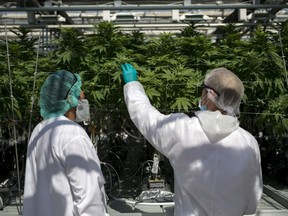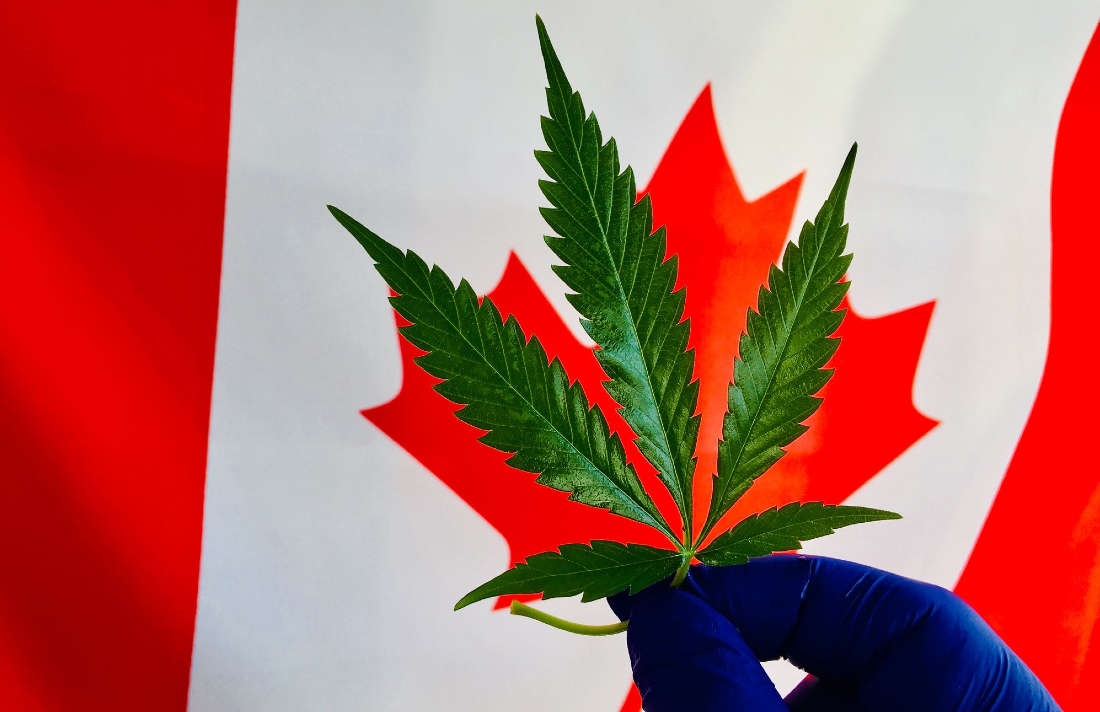Posted and Edited by Valkyrie Extractions
Original Article by Sam Riches/National Post
The historic policy shift remains Trudeau’s most significant feat, but
the onerous excise tax has marred the journey to sunny days

https://valkyrieextractions.com/
A few weeks after Canada’s fifth anniversary of cannabis legalization, industry executives gathered in the Crystal Ballroom of the Omni King Edward Hotel in downtown Toronto.
They had travelled from across the country to attend the two-day, invite-only event. Tickets going for $1,800. Now in its third iteration, the room was humming a much different tune than it was in 2021. Its inaugural year.
The industry stands at an inflection point
But it’s far from the only one. A half-decade into legalization — Prime Minister Justin Trudeau declared cannabis was legal as of Oct. 17, 2018 . The industry stands at an inflection point.
On one hand, it has made substantial economic contributions. The sector’s GDP contributions are on par with the dairy industry. It has carved out a global footprint, particularly in the growing medical cannabis export market.
On the other, it is grappling with financial strains. The need for clearer advocacy and education, and a regulatory framework that has been stuck in a state of inertia for years.
The back-of-the-napkin calculation is out of line with the realities of the industry, critics say. Impacting not only the large corporate behemoths but also the numerous mid and small-scale businesses that make up the majority of the sector.

https://valkyrieextractions.com/
Everybody can say the excise is too high because it unequivocally is…
Although other long-standing industry concerns, like the 10mg THC edible limit and regulatory fees, are also regularly raised, opposition to the excise tax seems to be a rare unifying factor in an otherwise wildly complex and varied industry.
On average, the excise tax generates close to $1.5 billion annually for the federal, provincial and municipal governments.
In October, the Cannabis Council of Canada (C3) published survey data from 122 licensed producers across Canada. It revealed that respondents paid 20 to 35 per cent of their 2022 gross sales in excise taxes, with over 70 per cent noting an increase in this rate from 2021 to 2022.
https://deliverymeds.shop/
Consumers pay a price, too
Earlier this year, a report from Ernst & Young found that nearly 50 per cent of the price of a basket of legal cannabis products is due to government taxes and provincial markups. According to that report, the price of legal cannabis in Ontario is dictated by the original cost from the producer (27.1 per cent), the markup from the provincial distributor (18.8 per cent), the retail markup (26.3 per cent) and government taxes (27.8 per cent).
Everyone’s waking up and realizing that the government can’t just keep milking it
Allerton said if the government is hesitant to make large-scale regulatory changes, it should at least introduce a tier for micro and craft growers that offers more relief and encourages small and independent businesses.

https://valkyrieextractions.com/
We just got pushed out of the market
One of the small and independent businesses recently impacted by Canada’s regulatory framework is Fritz’s Cannabis Company, which operated as a grey market cannabis brand before joining the regulated industry in 2021.
“We essentially folded last month,” co-founder Ari Cohen told National Post in October. “It was kind of a long time coming. So much was stacked against us, based on the regulations, based on (Ontario Cannabis Store) royalties, and the restrictions on what we could market and what we couldn’t. We just got pushed out of the market.”
Despite four years of being in the black — the OCS banked $459 million in the last fiscal year. The entity has not paid any dividends to the Ontario government. Of that $459 million, $310 million was excise tax and $148 million was sales tax.
Further complicating matters, the OCS markup is now 25 per cent and this markup is applied on top of the price of the product. Which already includes the excise tax. Because the markup is a percentage added to the total cost, it effectively increases the impact of the excise tax.
You’re not big enough for us to support you 🙁
Tabitha Fritz, the other founder of the brand, was featured on the OCS’s website in a roundup of small businesses that had made the jump from legacy to legal. The support for their business stopped there.
“Within a week they told us they’re not picking up any of our products for the website. They literally said you’re not big enough for us to support you,” she said.

https://valkyrieextractions.com/
In 2017, the Department of Finance published a backgrounder on the federal, provincial and territorial agreement on the cannabis taxation scheme.
Keeping it out of the hands of youth and profits out of the hands of criminals 🙂
Its first general principle notes that “taxes on cannabis will be kept low to support the objectives of its legalization. Keeping it out of the hands of youth, and profits out of the hands of criminals.”
It went on to explain that taxes collected would largely be allocated to provincial and territorial governments. While 25 per cent would be directed to the federal government. It also noted that the federal portion of cannabis excise tax revenue would be capped at $100 million annually.
This year, though, the federal government’s share of excise taxes and estimated sales tax from cannabis sales are expected to exceed $455 million.
A lot of small businesses haven’t been able to cut through that noise
David Brown, a cannabis industry policy analyst, was initially skeptical regarding corporate grievances about the excise tax. He also sees it playing out with the smaller producers. After accounting for the government’s take, some of these mid- and small-scale businesses barely manage to cover payroll and expenses. Leaving no room for profit.
https://deliverymeds.shop/
Biggest errors in the legislation
He added that the excise tax being built around the $10 a gram assumption is one of the “biggest errors in the legislation.”
He also said that over-regulation was initially understandable as Canada was the first G7 country to legalize the plant. Five years later, any anticipated calamities haven’t come to pass. It’s time to adjust.
Niklas Kouparanis, CEO and co-founder of Bloomwell Group, one of Germany’s largest private cannabis companies, said the country is taking a conservative approach after watching Canada’s foray into legalization.
The big times of the Canadian market are over

https://valkyrieextractions.com/
He said the focus on large-scale production of cannabis far exceeded market demand. That, along with faulty distribution channels, are partly to blame for the more than 1.5 billion grams in unsold cannabis…
(later to be destroyed https://valkyrieextractions.com/canada-destroyed-3-7-million-pounds-of-unsold-unpackaged-weed-since-2018/
Despite the frustrations and complaints, there’s palpable pride in the room. The conversation focuses on the strides Canada has made as the first industry of its kind in the world.
There have been missteps. But there’s a call for collective unity and a belief that a less volatile and more sustainable picture will take shape.
Just chasing a hot industry
Fletcher reflected on the current state of the industry optimistically, crediting the people in the room around him. “They’re much more passionate about the industry and about the actual products versus just chasing a quick buck. I think, in 2021, we had a number of bankers, consultants and individuals who were just chasing a hot industry.”
Our website is the place for the latest breaking news, exclusive scoops, longreads and provocative commentary.
Please bookmark https://valkyrieextractions.com/ and sign up for our daily newsletter 🙂
Until next time…



